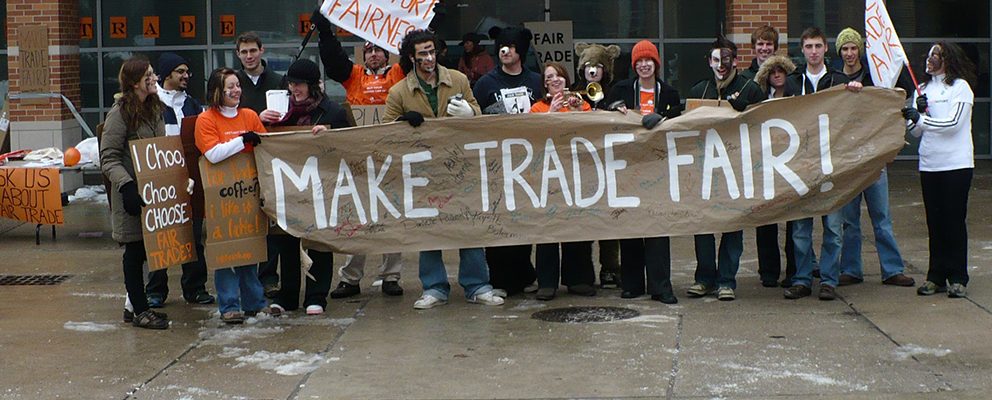Championing alternative purchase practices to encourage the equal distribution of wealth and resources.
Advocating for Fair Trade involves striving to ensure healthy and ethically sourced food is available for everyone. Encouraging the purchase of Fair Trade products means that some of the most disadvantaged producers in the world have access to global markets, creating the means for long-term investment, improved labor standards, and more sustainable community development overall.
What is Fair Trade?
Fair Trade is an alternative approach to conventional trade, with an increased focus on the direct partnerships between producers and consumers. When farmers sell their products through the Fair Trade model, they receive a guaranteed minimum price, improved terms, and a social premium.
The premium is commonly implemented by a committee of local producers and is designed to improve communities by funding education, healthcare, infrastructure, and local business improvement projects.
The Fair Trade model empowers everyday consumers to make significant contributions towards eradicating poverty. In a broader sense, Fair Trade supports the UN’s Sustainable Development Goals, addresses climate change through promoting improved agricultural techniques, and encourages business practices that reduce poverty.
Our work with Fair Trade.
We have championed more equitable purchasing practices for over a decade and partnered with the Canadian Fair Trade Network.
Broadening our approach to encompass Food Systems is an integral aspect of our work in eradicating global poverty. Two years ago, we invited chapters to experiment with and explore other opportunities for collective impact connected to food.
Up to this point, EWB chapters have contributed substantially to advancing Fair Trade across Canada. Campuses and workplaces are uniquely positioned to advocate for the purchasing of Fair Trade products, and have played significant roles in redirecting the flow of capital away from exploitative supply chains to sustainable ones.
Now, we want to take our work with Fair Trade to the next level.
EWB change-leaders are currently working to transform our approach from wide exploration to one with a more tightened focus. We’re interrogating, experimenting and exploring to identify:
‘What are the leverage points and who are the partners we could work with to ensure a world where everyone has access to nutritious, ethically sourced food, and can meet their full potential?’
The steps involved in seeking change.
Our focus is on long-term solutions that act on the root-causes of food issues – we’re working on systems, rather than symptoms.
Of course, the goal is to eliminate the symptoms by challenging short-term solutions like food banks: they provide food (albeit low-nutrition food) to solve the symptom of immediate hunger, but they fail to act on the root causes, or offer a sustainable solution to help stop the hunger moving forward.
While exploring new innovations and leverage points, we will continue to progress on our targeted and well-established method of advocating for Fair Trade. Specifically, with a view to achieving key metrics for success.
What we’re aiming for.
All of our strategies and initiatives in relation to Fair Trade are accelerating towards the following key goals:
- All EWB Campuses designated Fair Trade by 2018. Those that are already designated will increase product availability and require franchises to offer Fair Trade products.
- Workplaces, events, and cities through a meaningful EWB connection being designated Fair Trade.

